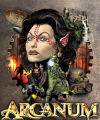 |
||||||||||||||||||||||||||||||||||||||||||||||||||||||||||||||||||||||||||||||||||||||||||||||||||||||||||||||||||||||||||||||||||||||||||||||||||||||||||||||||||||||||||||||||||||||||||||||||||||||||||||||||||||||||||||||||||||||||||||||||||||||||||||||||||||||||||||||||||||||||||||||||||||||||||||||||||||||||
 |
||||||||||||||||||||||||||||||||||||||||||||||||||||||||||||||||||||||||||||||||||||||||||||||||||||||||||||||||||||||||||||||||||||||||||||||||||||||||||||||||||||||||||||||||||||||||||||||||||||||||||||||||||||||||||||||||||||||||||||||||||||||||||||||||||||||||||||||||||||||||||||||||||||||||||||||||||||||||
|
||||||||||||||||||||||||||||||||||||||||||||||||||||||||||||||||||||||||||||||||||||||||||||||||||||||||||||||||||||||||||||||||||||||||||||||||||||||||||||||||||||||||||||||||||||||||||||||||||||||||||||||||||||||||||||||||||||||||||||||||||||||||||||||||||||||||||||||||||||||||||||||||||||||||||||||||||||||||
|
||||||||||||||||||||||||||||||||||||||||||||||||||||||||||||||||||||||||||||||||||||||||||||||||||||||||||||||||||||||||||||||||||||||||||||||||||||||||||||||||||||||||||||||||||||||||||||||||||||||||||||||||||||||||||||||||||||||||||||||||||||||||||||||||||||||||||||||||||||||||||||||||||||||||||||||||||||||||
|
||||||||||||||||||||||||||||||||||||||||||||||||||||||||||||||||||||||||||||||||||||||||||||||||||||||||||||||||||||||||||||||||||||||||||||||||||||||||||||||||||||||||||||||||||||||||||||||||||||||||||||||||||||||||||||||||||||||||||||||||||||||||||||||||||||||||||||||||||||||||||||||||||||||||||||||||||||||||
|
||||||||||||||||||||||||||||||||||||||||||||||||||||||||||||||||||||||||||||||||||||||||||||||||||||||||||||||||||||||||||||||||||||||||||||||||||||||||||||||||||||||||||||||||||||||||||||||||||||||||||||||||||||||||||||||||||||||||||||||||||||||||||||||||||||||||||||||||||||||||||||||||||||||||||||||||||||||||
|
Ver. 1.0, April 2000
Q: How do magic and technology work in Arcanum? A: Magic and technology are opposites. Magic bends physical law to the will of the mage. Technology depends on physical law. And, in the fantasy world of Arcanum the use of technology reinforces physical law, countering the effect of magic. The spell Stone Missile works by summoning a small rock out of thin air (physically impossible!), and then accelerating the rock to high speed along a finely controlled trajectory, merely by force of will (also physically impossible). In contrast, a gun takes advantage of several physical laws to achieve the same ends. In Arcanum each use of magic weakens physical law, and each use of technology reinforces it. This dichotomy is directly built into the gameplay. To model this in a fun, and not overly complex manner, the state of physical law is tied to the people who change it. A practiced mage weakens the law, and that weakness of physical law becomes a part of the mage, following him wherever he goes. A studied technologist reinforces the law, and that strength of physical law becomes a part of the technologist, traveling with him. The game examines a character's skills and derives from them a quantitative aptitude towards magic or technology. A character who knows several spells but only one technological skill will have a significant magical aptitude. A character who has mastered several technological skills but only one spell will have a high technological aptitude. This stat is used to modify the effectiveness of every spell and every technological skill as they are used by that character. A character with an aptitude for magic receives a bonus when casting spells, and a penalty when using a technological skill. As you can guess by now, the reverse is true for technology. It is also possible for a character to study equal amounts of magic and technology. That character's magical and technological aptitude will hover near zero. Spells and technological skills will both work normally for the balanced character, without penalties or bonuses. Q: How does a character's magical or technological aptitude affect skills used on that character? A: If you shoot a gun at a skilled mage, the bullet will have difficulty maintaining a steady trajectory, and may miss on account of this. The mage weakens the physical laws that the bullet uses to stay on target, such as the stabilization imparted by spin. The spell Stone Missile will have a similar problem when used against a master technologist. The technologist reinforces physical law, making it harder for the Stone Missile to stay on target, or to impact with the usual force. When one character uses a skill on another character, both characters' aptitudes are taken into account. The acting character may receive a bonus or penalty from his own aptitude. The aptitude of the target can contribute a penalty, but not a bonus. When a spell is cast, the technological aptitude of the target is subtracted from the magical aptitude of the caster. If the result is positive, a corresponding bonus is applied to the spell, representing the superior magical aptitude of the caster. If the result is zero, the match is even, and the spell activates normally, without a bonus or penalty. If the result is negative, a penalty is applied to the spell, representing the superior technological aptitude of the target. Sometimes the caster might have a technological aptitude instead of a magical aptitude -- perhaps this character is an engineer who has learned just one or two spells for when they're handy. In this case the technological aptitude of the caster will be treated as a negative magical aptitude to begin with. If the target also has a technological aptitude, this will be subtracted from the initial negative number to make for an even larger penalty. The same pattern holds for the use of technological skills, just with a switch of aptitudes. This rule also affects the use of beneficial skills, such as healing. Q: What makes and item "technological"? A: An item that is complex enough to be out of place in a traditional, pre-gunpowder fantasy setting is considered technological. A bow would be a good example of one of the more complex items that would not count as technological and would not interfere with magic. There are a few elements of traditional fantasy that we are considering technological. One example is the chemical mixings of the alchemist. Locks are also considered slightly technological. A: There are 80 spells that players can learn, though no single character will learn them all. They fall into 16 colleges each with 5 spells, and these spells are of varying difficulty (1 is the easiest, whereas 5 is the most difficult to learn). There are other spells that players cannot learn, either because they must be bound into items, or because the knowledge of their casting has been lost to nearly all spell-casters. The 16 spell colleges are: Conveyance, Divination, Elemental Air, Elemental Earth, Elemental Fire, Elemental Water, Force, Mental, Meta, Morph, Nature, Necromantic (Evil), Necromantic (Good), Phantasm, Summoning, Temporal. Q: How does spell casting work in Arcanum? A: Magic in Arcanum does not require rituals, nor is it mana-based. When you use magic in the world of Arcanum, it costs you Fatigue. In other words, casting spells tires you out. You can regain Fatigue through the use of potions, but you also regain Fatigue by simply resting. There are also magical talismans, staves, etc. that contain mana. If you are in possession of one of these artifacts, your magic will draw upon the item's mana before draining your own. The item will then recharge through lack of use, in the same way that you do. Some of these items will also contain innate spells, which are cast either Passively (the item casts the spell when you wear it, wield it, etc.) or Actively (you pick the spell to cast from an interface showing which spells it has bound to it). These spells are cast using a separate internal mana store in the item, and as such you will be unable to use your own Fatigue to cast them once the item is drained. (As a side note, you will be unable to utilize an item's Active spells until you have Identified the item, though the Passive ones will still activate.) Magic is not the only thing that will affect your Fatigue. If you are hit with a blunt object (a club, for instance), it causes a small amount of physical damage and a larger amount of Fatigue damage. Fatigue is also affected by running and by being heavily encumbered. There are no constraints on items wearable based on your Magic or Tech bias, however Mages will likely be wearing lighter armor (or even robes) in order to lessen their Fatigue costs. Q: What can a technologist make? A: Here's a list of just a few of the items you will be able to create after studying technological disciplines: Through the Discipline of Chemistry, one of the items you can make is Hallucinite. Use a vial of this on your enemy and watch him flee in panic as he sees monsters that aren't really there. Through the Discipline of Electrical, you can learn how to combine a watch and various electrical parts to create a magic detector. This device detects magical items and beings. (One good use for the magic detector is to make sure there aren't any spells on chests before you try and open them.) Through the Discipline of Explosives, one of the item you can create is a Stun Grenade. This weapon does fatigue, not physical damage. (A great weapon to use against mages!) Through the Discipline of Gun Smithy, one degree that you earn will enable you to build an elephant gun. The elephant gun is a big, high powered weapon, one of the most powerful guns in the game. That's just a small sampling of the items you can build through the knowledge gained in the technological disciplines. The different disciplines will allow you to build lots of different types of items, from Therapeutics, which let you enhance your characters basic abilities (with elixirs) to Smithy, which will allow you to forge refined weapons, better than those found elsewhere in the game. There are going to be more than 56 items that you can create. In addition to the 7 that you can create in each discipline, there will be several cross disciplinary things that can be built. As an example, if you have a smattering of knowledge in Anatomical, and are well versed in Chemistry, you will be able to find a schematic that will teach you how to animate the dead. Q: Will there be healing potions or salves? A: Yes, there are magical healing potions. We also have their technological counterparts, called therapeutics. Q: What magical items are in Arcanum? A: Almost any item that you can pick up in the game can be magical (as in, it can contain spells, have enhanced attributes, etc.). The only exception to this is technological items. Players cannot enchant items themselves, but may encounter people in the world that have the knowledge to craft specific items, will be able to find them by adventuring, and can buy some of them from merchants. There are different types of enchantments an item can have. Weapons can have enhanced bonuses to-hit, damage (different types of damage too, such as physical, fire, electrical, etc.), speed (how quickly you can attack with the weapon), how far a ranged weapon can fire, critical modifiers, minimum strength adjustments (so the 90 pound halfling can wield the Huge Hammer Of so-and-so, for instance), and more. Armor adjustments can modify your various resistances, etc. Generally, items can have weight adjustments, and they can have innate stores of mana to help you cast spells (the item is drained before you are, and it will recharge the same way you do). Also, any item can hold multiple spells (and they can have a separate store of mana charges that are dedicated to these spells), and these spells could be the same ones that you can learn yourself (from any of the 16 colleges), or even "lost" spells that are unique to the item. Normal spells would be ones that you specifically activate (say, a staff that shoots fireballs on command), or ones that activate based on various triggers. Some examples would be: a ring that gives you regeneration while you are wearing it, a sword that drains some of the life out of your opponent and gives it to you when you hit successfully, an amulet that brings you back to life -- once -- if you die, a magic rock that explodes as a fireball when it hits the ground -- a kind of magic grenade if you will, a dagger that lights up like a torch and does extra damage against undead, etc. These are examples of fairly obvious, traditional items that you might expect (and may or may not see), to show some of what we can do without really giving anything away, but we plan on having many interesting items in the game, some you will expect for sure, but many will be unique and cool. Magic Items aren't so common that everyone you run across will have a +1 sword (for example), as then they would be so common as to be meaningless, but we think that you will be pleased with the flavor of them in our world. Mind you, this is what they can *theoretically* do. For balance reasons, you will never find an item that does *all* of these things, or that does even a handful of them super-powerfully. Some items even have trade-offs. For instance, you may have a weapon that is enchanted to do massive damage, but due to a flaw in the enchantment it is difficult to move quickly. So you would have a weapon that could deal out some pretty hefty damage, but you wouldn't attack as frequently with it. There *are* artifact-level magic items, but they are extremely rare and always have trade-offs of one sort or another. Due to the schism between magic and technology, you won't find magic guns or other Tech items. However, you could certainly have magic swords (as described above), bows, etc. Technologists with the appropriate skill, items, and schematics can enhance Tech-based items, so you will find technological items that balance out the magically enchanted ones, but frequently in different ways. (officail troika FAQ, taken from troikas homeage http://www.troikagames.com/ and can be found at http://www.troikagames.com/arcanumfaq ) |
Copyright notice: Unless stated otherwise, all original content on this site is (c) Terra Arcanum staff, 2000-2023, all rights reserved. Many of the materials of this site are based on materials copyrighted by Troika Games, Sierra Studios, Atari, Activision and other companies. |






